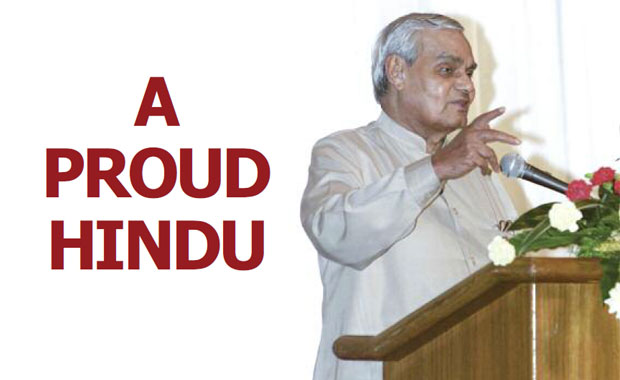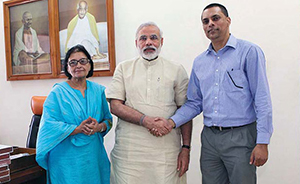A Proud Hindu
As Atal Bihari Vajpayee turned 90 on December 25, he remains one of the finest practitioners of India’s enlightened pluralism as embedded in its ancient civilization rather than an obligation as mandated by the constitution of a young nation-state
At one point or another, Vajpayee has spoken about some of the same subjects which have come to the fore of the national discourse again. For instance, in his Pune speech 30 years ago he also spoke about how “dharmantaran” (converting to another religion) had also become “rashtrantaran” (switching national loyalties). In that context, he cited the examples of countries like Indonesia which, despite being Islamic, continued to maintain its cultural underpinnings. He said they may have changed their form of worship but not their culture. Notwithstanding all such assertions, even his worst detractors would happily grant him consistent cultural moderation, political reasonableness and high parliamentary behavior.
Born in Gwalior in 1924, Vajpayee came of age in the midst of a tumultuous campaign for India’s independence. He spent his formative years contrasted against a national upheaval that eventually created one of the world’s greatest freedom movements. In many ways, Vajpayee was profoundly influenced by the national sense of purpose that he saw and was very much a part of the freedom movement even though he may have come to it from a position of someone like Savarkar.
During his tenure as prime minister, he did manage to follow the philosophy of the state being nonpartisan. While some of it may have to do with the compulsions of coalition politics, it was mainly because of the way Vajpayee has always approached the idea of India, “Raj Dharma” as he calls it. One can always get into the specifics of his accomplishments as prime minister, such as turning India into a full-fledged nuclear power by ordering nuclear tests almost as the first order of business after taking over in 1998. However, Vajpayee’s greater contribution to India’s national life generally and politics specifically has been to steadfastly offer a competing but moral and righteous vision of the country as well as to maintain very high standards of public discourse in service of true democracy.











Comments.